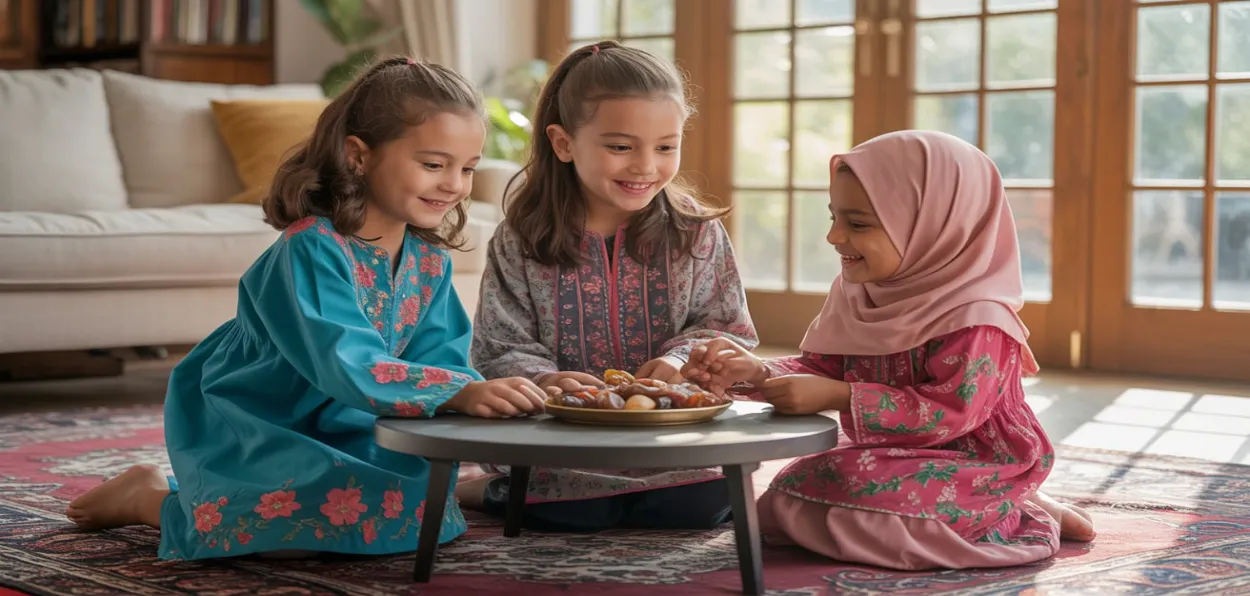
Eman Sakina
In many cultures throughout history, daughters were often viewed as a burden or treated with lesser respect compared to sons. Pre-Islamic Arabia, known as the era of Jahiliyyah (ignorance), was no exception.
Female children were sometimes despised, denied inheritance, and even buried alive due to social shame or fear of poverty. However, with the arrival of Islam, this unjust mindset was firmly rejected. Islam elevated the status of daughters, granting them dignity, rights, and honour, and presenting them as a source of blessing, mercy, and spiritual reward.
Before the revelation of the Qur’an, some Arab tribes considered the birth of a daughter a disgrace. The Qur’an condemns such attitudes in clear terms:
“And when one of them is given the good news of a female, his face darkens, and he suppresses his grief. He hides himself from the people because of the bad news he has received. Should he keep her in humiliation or bury her in the ground? Unquestionably, evil is what they decide.” (Qur’an 16:58–59)
This verse not only forbids the heinous act of infanticide but also teaches that the emotional rejection of daughters is a grave wrong. Islam thus transformed the cultural outlook, urging parents to celebrate the birth of a daughter with gratitude.
Islam teaches that daughters are not a burden but a means of Allah’s mercy and reward. The Prophet Muhammad (peace be upon him) repeatedly emphasised kindness, love, and the proper upbringing of daughters.
He said: “Whoever has three daughters and is patient with them, clothes them, and marries them off, they will be a shield for him from the Hellfire.” (Sunan Ibn Mājah)
In another narration, even two daughters raised with love and care are sufficient to secure a parent’s place in Paradise. Such statements show that daughters are not only a trust (amanah) but also an opportunity for spiritual success.
Islam commands parents to provide their daughters with the same love, education, and upbringing as their sons. The Prophet never distinguished between boys and girls in affection. His tender relationship with his daughter Fatimah al-Zahra (RA) is a shining example. Whenever she entered a room, he would rise to greet her, kiss her forehead, and seat her beside him—an act of love and respect that set a standard for all Muslim fathers.
Seeking knowledge is a duty upon every Muslim, male and female. Daughters have the right to learn, grow, and develop their talents, as education empowers them to fulfil their religious and worldly responsibilities.
By granting them the freedom to accept or reject marriage proposals, Islam protects daughters. Without the woman's assent, a marriage cannot be deemed lawful. Parents are also instructed by the Qur'an to treat daughters fairly when it comes to inheritance. A daughter's right to inherit is inalienable and safeguarded by divine law, even when inheritance shares differ based on family circumstances.
Raising daughters with love, fairness, and good manners is an act of worship. Parents who provide their daughters with a proper Islamic upbringing—teaching them faith, modesty, and moral strength—are promised immense reward. The Prophet (peace be upon him) said: “Whoever brings up two daughters properly until they reach maturity will be with me on the Day of Judgment like this,” and he joined his fingers together. (Muslim)
This powerful statement highlights how caring for daughters draws one closer to the Prophet himself in the Hereafter.
Here is a brief overview of how daughters are regarded in different major religions:
Hinduism: Daughters are the embodiment of Shakti, the divine feminine power, and are seen as Lakshmi (goddess of prosperity), who brings good fortune.
Christianity: Daughters are spiritually equal to sons (Galatians 3:28). Jesus honoured women and girls, and modern Christian teachings promote equal love, education, and dignity.
Judaism: Daughters are a blessing from God and share in the Jewish covenant.
Buddhism: Daughters have the same spiritual potential as sons and can attain enlightenment.
Sikhism strongly emphasises gender equality. Daughters have equal rights in inheritance, education, and religious participation. Female infanticide is strictly condemned.
READ MORE: Artist-Poet G. R. Santosh was inspired by Kashmir's Shaivism, Tantra
Across the world today, many religious communities continue to work toward aligning cultural customs with faith’s core values of love, justice, and equality for daughters.
